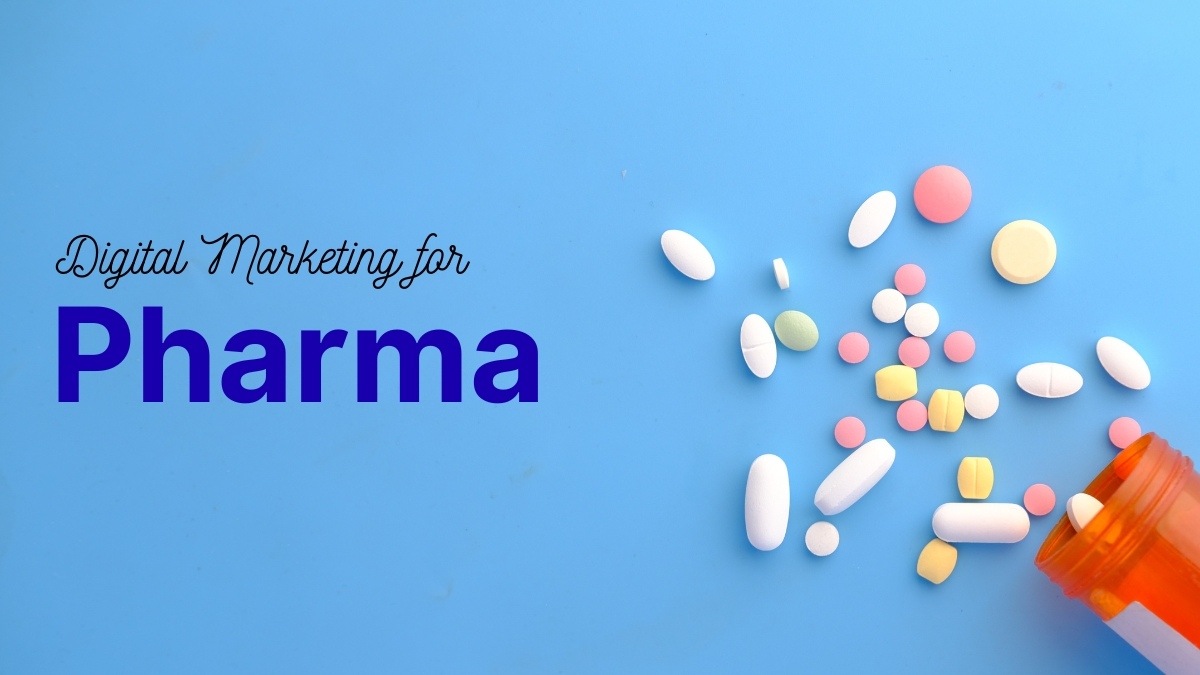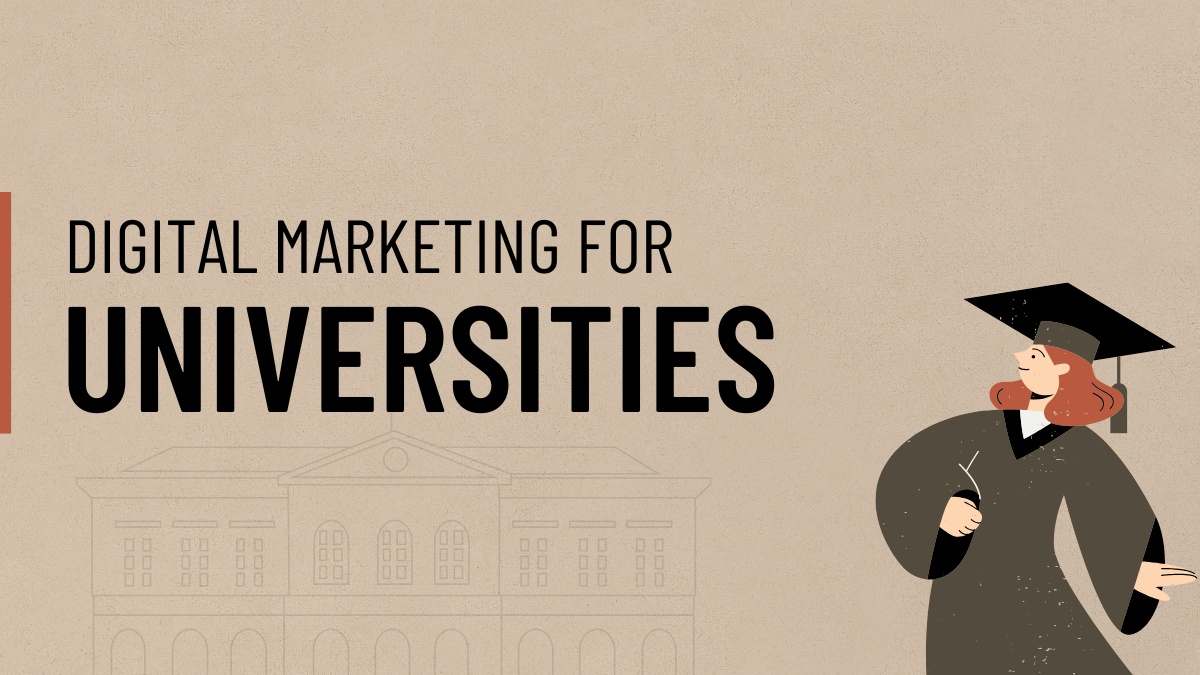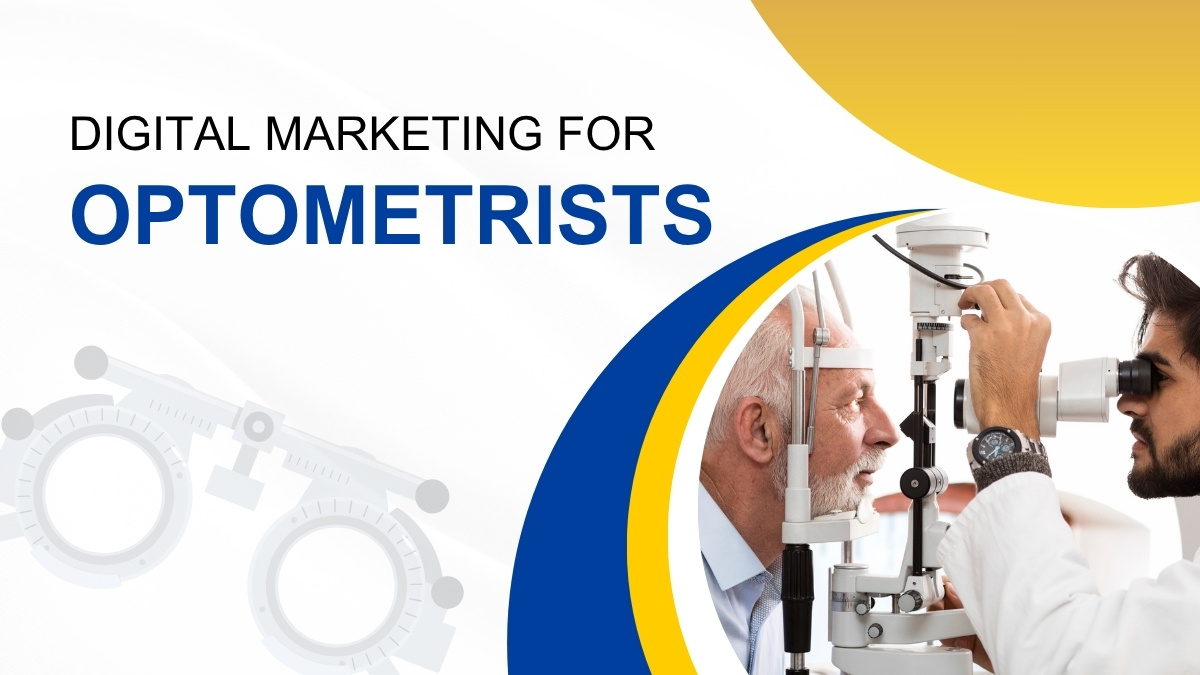
Digital Marketing for Pharma
Navigating the world of marketing can feel like learning a new language, especially in a highly regulated field like pharmaceuticals. For decades, the industry playbook was straightforward: sales representatives visiting doctor's offices, advertisements in medical journals, and presentations at conferences. But the world has shifted. Your patients, their caregivers, and the healthcare professionals you partner with are all online. If you're not there to meet them, you're not just missing an opportunity—you're becoming invisible.
This guide is designed to be your comprehensive roadmap. We will walk you through every critical aspect of digital marketing for pharma, breaking down why it’s essential, exploring powerful strategies in detail, and demystifying the complex world of compliance. By the end, you'll have a clear, actionable plan to connect with your audience in a modern, meaningful, and compliant way.
Why Digital Marketing is No Longer Optional for Pharma

Think about the last time you had a question. What did you do? You likely pulled out your phone and asked a search engine. This behavior is universal, and it extends to healthcare. Patients research conditions, caregivers look for support networks, and doctors seek out the latest clinical data online. Digital marketing allows you to be a trusted presence in these critical moments.
Here’s a deeper look at why it’s indispensable:
-
Empowering the Modern Patient: Today’s patients are proactive. They want to understand their health, explore treatment options, and be active participants in their care. By providing accurate, accessible, and easy-to-understand content, you empower them to have more productive conversations with their healthcare providers (HCPs). You move from being a product manufacturer to a partner in their health journey.
-
Engaging a New Generation of HCPs: The way doctors consume information has changed. They are busy, digitally savvy, and prefer to access information on their own terms. Digital channels like specialized online portals, webinars, and professional networks allow you to provide them with clinical data, educational resources, and product information conveniently and efficiently, without interrupting their packed schedules.
-
Building Unbreakable Brand Trust: Trust is the cornerstone of healthcare. In the digital space, trust is built through consistency, transparency, and value. When you consistently publish credible, helpful information without an overt sales agenda, you establish your company as a reliable authority. This trust extends from patients to HCPs and is invaluable.
-
Harnessing the Power of Data: Every digital interaction creates a data point. This information is a goldmine of insights. You can learn what questions patients are asking, what research topics are trending among specialists, and which of your educational materials are most effective. This data allows you to move from assumption-based marketing to data-driven strategies that truly meet your audience's needs.
Core Digital Marketing Strategies for the Pharma Industry

Digital marketing isn't a single tactic but an ecosystem of interconnected strategies. For the pharmaceutical sector, success lies in choosing the right channels and tailoring the message to the audience and regulatory environment.
1. Content Marketing: The Bedrock of Your Digital Presence
Content marketing in pharma is not about selling; it's about educating. Your primary goal is to create and distribute valuable, relevant, and consistent content to attract and retain a clearly defined audience. It's the foundation upon which trust is built.
Your content should be unbranded and centered on disease-state awareness and education.
-
Educational Blog Posts and Articles: This is your home base for value. Create a content hub that answers the real questions your audience has. For a company specializing in oncology, articles like "Navigating Your First Chemotherapy Session" or "How to Talk to Your Family About a Cancer Diagnosis" provide immense emotional and practical value.
-
Compelling Patient Stories: With full consent and strict adherence to privacy regulations, sharing anonymized patient journeys can be incredibly powerful. These stories humanize a condition and create a sense of community and hope. They show people they are not alone.
-
Downloadable Resources and Tools: Practical tools can be a lifeline for patients and caregivers. Think about creating symptom trackers, guides for talking to your doctor, or checklists for managing medications. These resources are not only helpful but are also likely to be shared.
-
Engaging Video and Webinar Content: Video is the most engaging format online. You can host Q&A sessions with medical experts, create animated videos that explain a complex biological process in simple terms, or produce webinars for HCPs on emerging clinical trial data.
2. Search Engine Optimization (SEO): Ensuring You Are Found
You can produce the most brilliant content, but if it's buried on page 10 of Google's search results, it might as well not exist. SEO is the technical and strategic process of helping your website rank higher in search engine results for relevant queries.
Imagine a parent searching for "managing childhood asthma." A well-executed SEO strategy ensures your comprehensive guide appears at the top.
-
Strategic Keyword Research: This is the starting point. Use tools to discover the exact phrases and questions your audience is searching for. Think from their perspective. A patient might search for "side effects of blood pressure medication," while an HCP might search for "mechanism of action of new hypertension drugs." Your keyword strategy needs to address both.
-
Impeccable On-Page SEO: This involves optimizing individual web pages. Ensure your page titles are clear and include the main keyword. Write compelling meta descriptions that act as a mini-advertisement for your content in the search results. Use headings (H1, H2, H3) to structure your content logically.
-
Authoritative Link Building: In SEO, links from other reputable websites act as "votes of confidence." Earning links from medical associations, patient advocacy groups, and respected health information sites tells search engines that your content is trustworthy and authoritative.
-
Technical SEO Health: Your website itself must be optimized. It needs to load quickly, be mobile-friendly (as most health searches happen on phones), and have a secure connection (HTTPS). A poor user experience will hurt your rankings and drive visitors away.
3. Social Media Marketing: Fostering Community and Conversation
Social media for pharma is a delicate dance. It’s not a place for direct product promotion. Instead, it’s a powerful tool for raising disease awareness, sharing credible health information, and building a supportive community.
-
LinkedIn for HCP Engagement: This is the premier professional network. Use it to share peer-reviewed research, announce company milestones, post about conference participation, and share sophisticated content geared toward medical professionals. It's the digital equivalent of a high-level industry event.
-
Facebook and Instagram for Broad Awareness: These platforms are ideal for top-of-funnel awareness campaigns. Run campaigns for disease awareness months (e.g., Breast Cancer Awareness Month). Share inspiring patient graphics, direct followers to your educational blog, and create a visually appealing feed that offers support and general wellness tips.
-
X (formerly Twitter) for Real-Time Dialogue: X is perfect for sharing breaking news, live-tweeting from medical conferences (#ASCO2025), and participating in global health conversations like #WorldHealthDay. Its fast-paced nature makes it ideal for timely updates.
4. Paid Advertising: Precision Targeting for Maximum Impact
While organic reach is crucial, paid advertising allows you to target your message with incredible precision. This is particularly useful for reaching specific demographics or HCP specialties.
-
Search Engine Marketing (SEM): This involves paying to have your website appear at the top of search results for specific keywords. For pharma, this is most effective for unbranded campaigns (e.g., bidding on "migraine symptom tracker") or for driving HCPs to a secure portal. Branded ads are possible but require strict adherence to fair balance rules within the ad copy itself.
-
Social Media Ads: You can use platforms like LinkedIn to target doctors by specialty, location, and seniority. This is highly effective for promoting a webinar on a new clinical study or driving traffic to an HCP-gated resource center.
-
Display Advertising: These are banner ads that appear on other websites. For pharma, it's best to place these on contextually relevant sites, such as medical news publications or health and wellness blogs, to reach an engaged audience.
5. Email Marketing: Building and Nurturing Direct Relationships
Email remains one of the most powerful and direct communication channels available. The key is consent and segmentation. You can build different email lists for patients, caregivers, and various HCP specialties, sending each group content that is highly relevant to them.
-
A curated monthly or bi-weekly email can provide immense value to busy doctors. Include links to the latest research, summaries of important industry news, and invitations to exclusive educational events.
-
For patients who have been prescribed a medication and have explicitly opted in, you can create an email program that offers support. This could include medication reminders, tips for managing side effects, and links to helpful resources, improving patient adherence and outcomes.
-
Keep your audience engaged by letting them know when you've published new content. Send a simple email that says, "We've just published a new article on 'Eating for Heart Health.' You can read it here."
Mastering Compliance: Your Guide to Staying Safe

This is the area that causes the most anxiety for pharma marketers, but it can be managed with a robust framework. Regulations from bodies like the FDA in the US are designed to protect the public from false or misleading health claims.
-
Strictly Separate Branded vs. Unbranded Content: This is the cardinal rule. Unbranded content focuses on a disease or condition without ever mentioning a product name. Branded content, which mentions a product, is subject to much stricter rules and must always include a fair balance of benefit and risk information.
-
Zero Tolerance for Off-Label Promotion: You can only market a product for its specifically approved use (indication). Any promotion or discussion of unapproved ("off-label") uses is a serious violation.
-
Fair Balance is Non-Negotiable: For any branded communication, the risks and side effects must be presented with equal prominence to the benefits. In digital formats, this can mean including Important Safety Information (ISI) directly within a video or as a clearly accessible link next to a claim.
-
Establish a Bulletproof MLR Review Process: No piece of digital content—not a blog post, not a social media comment response, not an email—should ever go live without being reviewed and approved by your Medical, Legal, and Regulatory (MLR) team. This process is your ultimate safeguard.
-
Proactive Adverse Event Monitoring: You must have a system in place to monitor all digital channels (including comments and direct messages) for any mention of potential side effects (adverse events). These must be documented and reported to the FDA according to strict timelines and procedures.
Your Actionable Plan for Getting Started
This may seem like a lot, but you can begin with small, deliberate steps.
-
Step 1: Define Your Goals and Audience. Who exactly are you trying to reach? Patients with a rare disease? Cardiologists? What is your primary objective? Is it raising awareness, educating HCPs, or building corporate trust? Get specific.
-
Step 2: Start with Unbranded Content. This is the safest and most valuable starting point. Build a high-quality blog or resource center focused on a disease state your company has expertise in. Focus on answering common questions.
-
Step 3: Pick One or Two Channels to Master. Don't try to be everywhere at once. If your goal is HCP engagement, focus on mastering LinkedIn and creating an SEO-optimized blog. If your goal is broad patient awareness, start with a Facebook page and a content-rich website.
-
Step 4: Develop a Content Calendar and a Review Workflow. Plan your content several weeks or even months in advance. This ensures a consistent output and gives your MLR team ample time for review, avoiding last-minute rushes.
-
Step 5: Measure, Analyze, and Optimize. Use free tools like Google Analytics to track your website traffic, see which articles are most popular, and understand how people are finding you. Use these insights to refine your strategy and do more of what works.
Final Thoughts
Digital marketing is fundamentally changing how pharmaceutical companies connect with the world. By embracing this shift and moving from a mindset of "selling" to one of "serving," you can build profound trust, empower patients on their health journeys, and provide invaluable support to the healthcare professionals on the front lines.
The path requires careful planning, a creative spirit, and an unwavering commitment to compliance. But the rewards are transformational. You have the ability to be a beacon of credible information in a sea of online noise. By embracing digital, you're not just marketing a product; you're making a tangible difference in people's lives.
30 minutes
Expert Consultation
Terms & Agreements
By booking a free 30-minute consultation, you agree to our terms, including scheduling, cancellation policies, and confidentiality. The session provides expert advice without guarantees of specific outcomes or results.





Leave a Reply
Your email address will not be published. Required fields are marked *